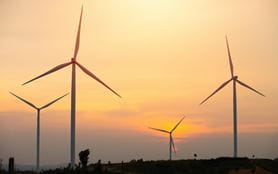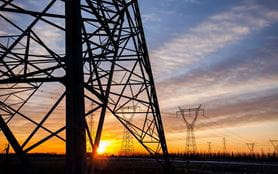COP27: Africa’s energy transition will take time
Related people
Press contacts
For media enquiries relating to this topic, please contact:
Headlines in this article
Related news and insights
News: 13 July 2023
Publications: 15 November 2022
COP27: Reaching for opportunities in an energy crisis in South Africa
Publications: 11 November 2022
COP27: Morocco – great progress, but more to do in energy transition
Publications: 10 November 2022
COP27: Putting energy transition back on track in North Africa
Concluding our series on COP27, Tim Scales, head of A&O’s Africa Group and Co-Head of the Global Projects Practice, calls for a pragmatic approach, recognising that, vital though energy transition is, it will not happen overnight.
As the world focuses urgently on energy transition and decarbonisation, there is clearly no shortage of ambition on the part of many African governments to play a key role in global efforts to tackle climate change.
It’s encouraging that, already, we are seeing significant progress across some of the 54 countries that make up the continent as our series of conversations with A&O partners whose practices focus extensively on Africa shows.
The Covid-19 pandemic, supply chain disruptions and energy and raw material price volatility, exacerbated by the war in Ukraine, have all led to some delays in planned projects. That’s true even in countries like Morocco that have made giant strides in adopting renewable technologies, as Antoine Haddad, a partner in our Casablanca office, points out.
But the impetus remains and these are, hopefully, short-term challenges.
But as our series also makes abundantly clear, there are even greater long-term obstacles to overcome.
Africa is under huge pressure from the international community to decarbonise at pace even though it accounts for less than 6% of global energy consumption and is responsible for only 2% of global emissions. Despite that, the need to transition is readily recognised in Africa, not least because the impact of climate change is being felt much more acutely here than in many other regions.
But, with a population set to double in the next thirty years, wider development challenges are also immense. While hundreds of millions of people have no access to electricity and clean water, there is also an urgent need to tackle famine, upgrade other infrastructure and improve education and healthcare.
As Guled Yusuf points out, the question is always asked: should Africa tackle energy transition first, then focus on wider economic development questions or should it be the other way around?
He is certain that that the two can go hand-in-hand. Renewable technology is advancing fast and becoming more affordable. Africa also has a strong track record of embracing and developing breakthrough technologies, as its leading role in the mobile communications revolution shows.
But some governments are having to strike a balance between developing Africa’s abundant renewable resources (primarily hydro, solar, wind, and, for the future, green hydrogen) and attracting much needed foreign investment to monetise its rich fossil fuel resources, particularly gas and oil. These revenues will be vital in the continent’s economic development.
When developed economies in Europe are planning to revert to coal power to free themselves from dependence on Russian gas on the grounds that it’s an emergency, it can look somewhat inequitable and hard to understand from an African perspective. Many African countries have been in a state of emergency for decades.
Financing change is also a significant challenge. Many utilities lack the resources to invest in new power generation or the liquidity to pay offtake tariffs offered by independent power producers (IPPs) when they are allowed to enter the market. Development banks and organisations are helping to ease some of these financing and contractual challenges, particularly in smaller African nations, but the task is immense.
Alessandra Pardini and Alexandra Clüver describe the much-needed market reforms being introduced in South Africa to allow IPPs to supply industrial and commercial clients direct, reforms that are likely to be closely followed elsewhere. In South Africa, these projects are all using renewable energy and they are helping to ease the pressure on an electricity system that is struggling to meet demand, with rolling blackouts now an uncomfortable norm.
But clearly much more needs to be done and elsewhere in sub-Saharan Africa alternatives to utility-scale renewable projects will need to be found, given the lack of grid infrastructure.
We should acknowledge what is already being achieved in Africa and take a pragmatic and realistic view of what can feasibly be achieved in the short, medium and long term.
Renewables will play an increasingly important role on the continent. But we call it energy transition for a reason: it’s not something that will happen overnight.
Renewables alone can’t meet the continent’s urgent power needs in the short-term. There will need to be an energy mix that is appropriate to Africa, rather than one that is imposed from the outside, as the transition gathers pace.
With the right support and investment, all the evidence, we believe, indicates that energy transition will inevitably accelerate, given time. And as COP27 concludes, that is a reason for real optimism.









